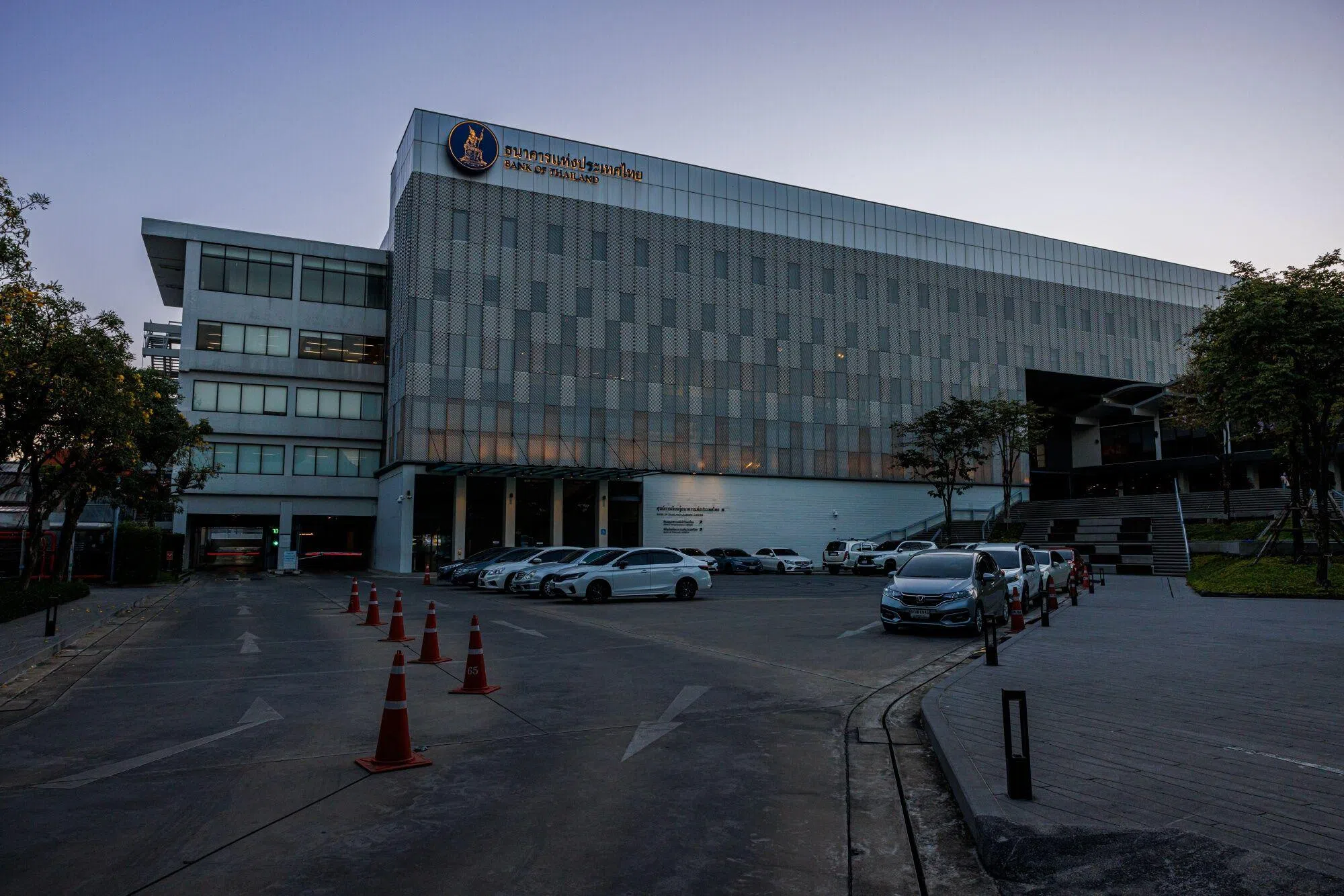THAILAND’S central bank is poised to keep the policy rate at a decade high this week as the economy gathers some steam but uncertainty about a US$14 billion handout may prompt a fresh wave of rate-cut pressure.
Paetongtarn Shinawatra, the new prime minister and the third member of the Shinawatra clan to lead Thailand, has pledged to lift the nation out of an “economic crisis” even as she said that the key stimulus promised by her predecessor needs further study.
Like the ousted premier Srettha Thavisin – she may lean on the Bank of Thailand (BOT) to lower borrowing costs. While Paetongtarn has yet to make any public remarks about the BOT since winning a parliament vote on Friday (Aug 16), she criticised it in May for pushing back against Srettha’s calls for a rate cut. She described the central bank’s autonomy as an “obstacle” to reviving the economy.
“The pressure on the central bank will likely remain as long as the economy is not in good shape,” said Somprawin Manprasert, chief economist at Siam Commercial Bank. “The government will continue to push for coordination between fiscal and monetary policies as well as policy accommodation.”
The BOT is expected to leave its benchmark rate unchanged for a fifth straight meeting on Wednesday by all but one of 24 economists, according to a Bloomberg News survey. One sees a quarter-point cut to 2.25 per cent.
Southeast Asia’s second-largest economy grew 2.3 per cent in April to June from a year earlier, the fastest pace in five quarters. Yet that’s unlikely to ease the pressure on BOT to cut, said Bloomberg Economics’ Tamara Henderson.
A NEWSLETTER FOR YOU
Friday, 8.30 am
Asean Business
Business insights centering on South-east Asia’s fast-growing economies.
Interference
“Under the hood, domestic demand decelerated. What’s more, the new prime minister, appears to have the same penchant for central bank interference,” Henderson said in an Aug 19 note.
With Paetongtarn sowing doubts about the cash stimulus, any flareup in tensions between the government and central bank will add to jitters of financial markets still reeling from recent political upheavals. Markets were rattled during the months of stand-off between Srettha and the BOT, with central bankers not just resisting rate cuts but also opposing the US$14 billion cash handout.
It does not help that former Shinawatra leaders have a history of clashing with the central bank.
Paetongtarn’s father – Thaksin Shinawatra, the de facto head of the ruling Pheu Thai Party, and her aunt Yingluck Shinawatra both adopted populist policies to achieve higher growth rates. Both also exerted pressure on the central bank.
In 2001, Thaksin fired the central bank governor after the official resisted raising interest rates. And Yingluck’s government had mounted a campaign during her term to push BOT to lower rates.
Paetongtarn is inheriting a US$500 billion economy that’s lagged the growth rates of its neighbours in the past decade, hobbled by massive household debt and the slow recovery of businesses from the pandemic.
Thailand last saw annual economic expansion above 5 per cent during the term of Yingluck, before almost a decade of military-backed rule. That’s a tall order for Paetongtarn as some segments struggle. The once dynamic Thai manufacturing sector, for one, has been reeling from an influx of cheap imports mostly from China.
Outsized influence
Paetongtarn’s approach on the central bank’s independence bears watching also because of her father’s outsized influence.
Even before Paetongtarn was officially declared as the new leader, Thaksin was cited by local media to have told his daughter to abandon the cash handout to shield his daughter from any adverse legal fallout.
“If the digital wallet project is dropped, and not replaced by any material economic stimulus, this would open up downside risks to the growth outlook and raise the odds of an earlier-than-expected rate cut,” Krystal Tan, an economist at Australia & New Zealand Banking Group.
The new government may also seek a tighter grip on the central bank by getting its nominee as the next chairman when the incumbent completes his term next month. Even if the BOT chair does not have an influence over monetary policy, the official can evaluate the governor’s performance as well as have a say on the composition of the Monetary Policy Committee.
Srettha’s 11 months in office also saw his aides including Finance Minister Pichai Chunhavajira seeking an upward revision in the central bank’s 1 to 3 per cent inflation target. That was also seen by analyst as another strategy to spur rate cuts.
“It certainly appears that tensions between the government and the central bank will persist until the latter starts a gradual normalisation of policy,” said Miguel Chanco, an economist at Pantheon Macroeconomics who expects a rate cut on Wednesday. “These tensions could be mitigated if the new PM decides to scrap the controversial digital wallet scheme.” BLOOMBERG






